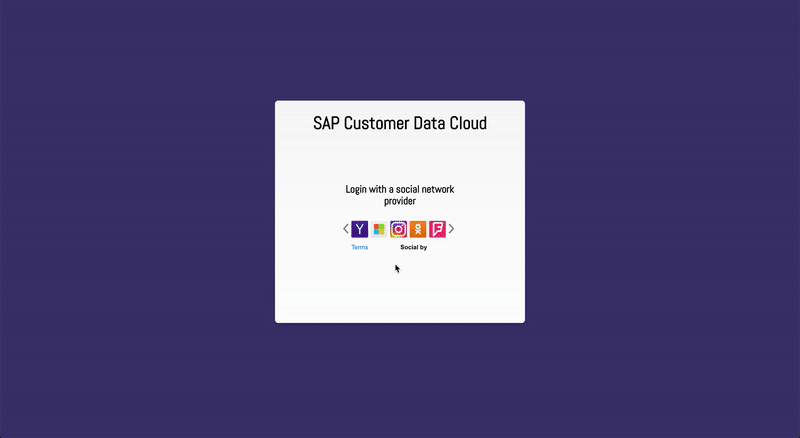This Web App is a demonstration of Gigya's Social Login API.
- run
npm ito install needed dev dependencies - run
npm run devto start the development server - The local address is copied to clipboard so navigate to it and click on
login.html- if not in use already the addresses we are interested in arehttp://localhost:5000/loginandhttp://localhost:5000/welcome
- run
npm ito install needed dev dependencies - run
npm tto start the development server - test results will be shown on the console as well as coverage of the files
- coverage report can be found in browser as well on a generated file
coverage/lcov-report/index.html
- Users can sign in using any of the social network providers supported by Gigya's API.
- During the login process if the user's email is not present in the User object given in the response from Gigya's API, the is prompted to provide her email address before redirecting to the next page
timesLoggedIncookie gets created the first time a user logs in having as initial value 1 which gets incremented every time the user logs back in the application. This cookie's expiration date is one year after the user's last log in.- Once logged in the user gets a personalised greeting (depending if she is a new user or not) and is able to view useful information for his profile gathered during the sign in process.
- Once logged in the user is able to share a post and log out using Gigya's API.
- If the user tries to access the
/welcomescreen without having signed in yet, she will get redirected back to/login.
The project contains:
- 3 main directories:
public,src,test(WIP) anddocs .babelrcfile to set the configuration of the javascript compilationrollup.config.jsfile to set the configuration of the project's bundlingjest.config.jsfile to set the configuration of jest for testingpackage.jsonfile with information about the project (dependencies needed, author, etc.)
The public directory contains the 2 main html files of this project:
login.htmlis the starting screen. In this screen the user is able to select the social login that she would like to use to sign in.welcome.htmlcontains useful information about the user, gathered from the login process. In addition to that in this screen the user is able to share a post and logout using Gigya's API. Thepublicdirectory also contains astylesdirectory with the css needed which is used in thehtmlfiles. Lastly thepublicdirectory contains the genrated javascript that is being used in thehtmlfiles.
src contains the javascript modules and utility functions needed, as well as login.js and welcome.js which have the initialisation of the modules.
test contains the javascript unit tests for the application using jest. (WIP)
docs contains documentation for the project. (eg. User Stories, Flowchart, Short Gif that shows the UX of the app).
.babelrc contains the configuration of the javascript compilation settings
rollup.config.js contains the configuration of the javascript's bundling process
jest.config.js contains the configuration of jest for testing
package.json contains information about the project (dependencies needed, author, etc.)
